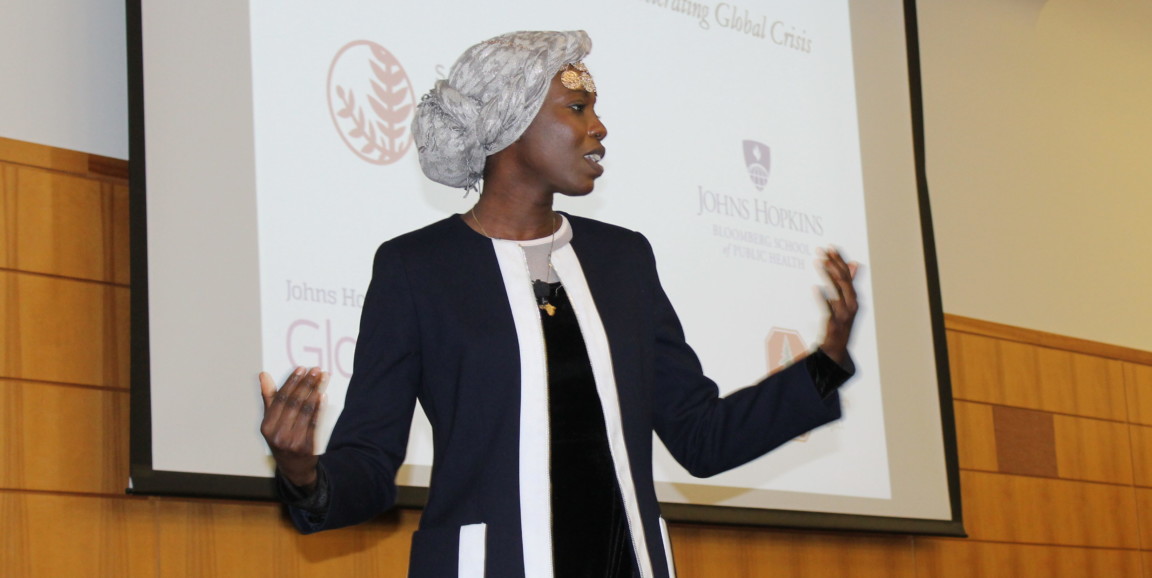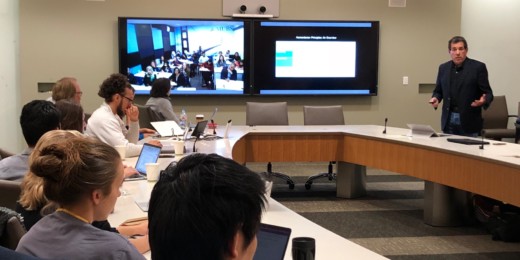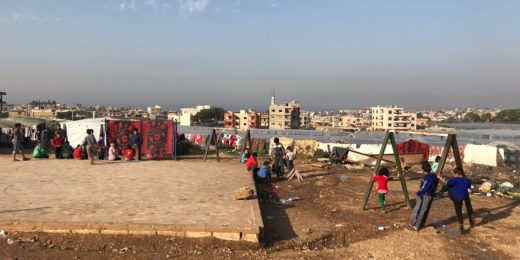In poet Emtithal Mahmoud's eyes, doctors serve on the front lines in any conflict zone and simultaneously provide the last line of defense.
"Between the time a conflict starts and when it ends, there are a lot of people who die and people who get hurt," Mahmoud, a goodwill ambassador for the United Nations, told a crowd of nearly 200 gathered for Rise with Refugees, an event co-sponsored by the Stanford Refugee Research Project and Global Health NOW, a publication from the Johns Hopkins Bloomberg School of Public Health. "The first people who try to help are the health professionals and they were the first people targeted in Sudan."
Mahmoud was only a child when she left Sudan with her parents, both medical professionals. Her father, a physician, was targeted, she said, after he refused to sign a death certificate with "malaria" as the cause of death when he knew the body had been tortured and killed.
The family settled in Philadelphia and traveled back to Darfur to visit relatives one summer when Mahmoud was seven. While they were visiting, her parents joined protests that began when the government stopped paying teachers. When soldiers started shooting protesters, Mahmoud ran home to hide under a bed with friends, hoping that she would see her parents again. They survived and the family returned to the United States.
"I had to go to second grade after that summer," Mahmoud said.
Aware that education was something that people were willing to die for, she pursued it relentlessly, even though, as she writes in her poem "Mama," "Every day I go to school with the weight of dead neighbors on my shoulders."
Mahmoud earned a scholarship to Yale, where she studied molecular biology and anthropology, and discovered the power of poetry to tell her story and the stories of other refugees. In 2015, she won the Individual World Poetry Slam with "Mama" and in 2016, she spoke at her college graduation.
At Rise with Refugees, Mahmoud performed three poems and told how poetry became a way for her "to convince people to care."
Rise with Refugees was designed to inspire the Stanford community to help refugees around the world, organizers said. "The academic sector must engage more on the ground with NGOs, U.N. agencies, and corporate partners to champion innovative and sustainable solutions to the worsening global displacement crisis," said Laila Soudi, who launched the Stanford Refugee Research Project within the Center for Innovation in Global Health.
In addition to the performance by Mahmoud, the event also featured a talk by Melissa Fleming, chief spokesperson for the United Nations High Commission of Refugees, who discussed the U.N.'s role in alleviating the crisis. Paul Costello, senior communications strategist and adviser for the School of Medicine, moderated a panel featuring leaders from academia, government and nongovernmental organizations.
Panelist Anne Richard, assistant secretary of state for population, refugees and migration in the Obama administration, compared the current situation to the time following World War II, when many nations were reluctant to accept refugees.
"We didn't want to make the same mistake, turning back people and sending them to death and despair," she said.
Mahmoud may someday join the community of healers who are working to help the refugees; she told the audience that she has plans to study medicine.
"I've taken the MCAT," she said, adding that doctors will always have an important, if precarious role, in conflict zones. "Doctors are the record keepers so even when we fail to preserve life, we can still succeed in making sure it's not erased."
Photo by Jody Berger






